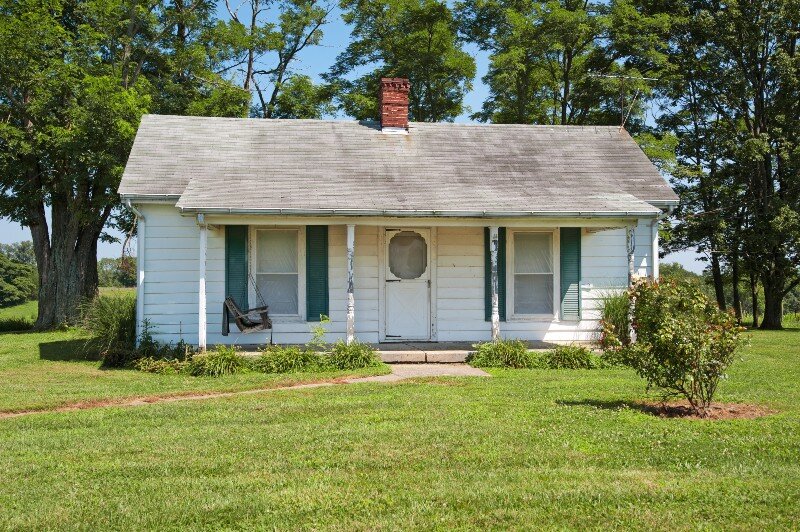
Selling a fixer-upper (a house that requires major repairs and renovations) can sometimes seem like an uphill battle.
Most homebuyers want to buy a house ready to move in as-is, not a fixer-upper house that they need to invest time, effort, and money into. However, it is possible to sell a fixer-upper home.
This guide will explain how homeowners with fixer-uppers can make strategic home improvements and find prospective buyers interested in purchasing damaged homes.
Selling a Fixer Upper
The most important thing you must consider as a home seller when selling a fixer-upper is your target audience. Who would be most likely to purchase your home? Cash home buyers in Idaho should be your first choice.
Cash buyers and home flippers are willing to make a cash offer on your home. You won’t have to invest in major repairs or take out renovation loans if you don’t have the funds to cover repair costs. Cash buyers purchase homes as-is, albeit at a lower price. After all, they will have to make the repairs themselves, which lowers the selling price.
Selling to a cash buyer also helps you save on closing costs. Many home sellers are surprised by the real cost of selling a house once you factor in closing costs, but you can avoid most of them with a cash sale.
Cash buyers also purchase homes with significant damage, including water damage, for the right price. Unlike minor repairs, fixing up a home with foundational, structural, and water damage can cost a lot of money and involve a lot of hassle.
Other people willing to purchase fixer-uppers include investors. Unlike flippers, they don’t necessarily plan to resell your home after repairing it and giving it a bit of TLC.
Instead, they may hold onto the house for a long time, renting it to earn a monthly rental income or waiting until the housing market improves and the home’s value increases. Once that happens, they sell it for a higher price.
Another option, of course, is repairing the home yourself and then selling it at its true market value. This strategy will require an upfront investment, but you can sell at a higher listing price, especially in a seller’s market, and earn a decent ROI.
You don’t need to go all the way, either. You can pick and choose which renovations you decide are worth it; continue reading to learn more.
Evaluating the Repairs Needed
The first step is evaluating which repairs the home needs and how much they will cost. You don’t always have to make repairs, and if you do, you don’t have to fix everything. However, you do need to disclose repairs you decide not to make.
Furthermore, creating a list of repairs is necessary, as it allows you to evaluate whether it’s worth investing in them. What would the potential sale price be if you made those repairs? Would you make a profit?
For example, if you invest $50,000 in repairs, could you sell the house for an extra $60,000? Some repairs may increase the value of the home more than others. For example, a minor repair like a fresh coat of paint can make the home significantly more attractive, and it doesn’t cost much.
However, if the repairs won’t increase the value of your home enough to recover their costs and more, they should go onto your list of what not to fix when selling a house.

Making Required Basic Home Repairs
Any old home that has experienced neglect and abandonment will have a wide range of issues. However, a lot of those issues are easy to repair and don’t cost a lot of money. Here are some basic repairs you can make before selling a home:
- Replace a faulty HVAC system.
- Repair broken pipes and install a new water tank.
- Fix leaky roofs.
- Install new glass on broken and cracked windows.
- Install new bulbs in the light fixtures.
- Repair leaky faucets and toilets or install new toilets.
These basic home repairs can significantly increase your home’s sale price, as many buyers will be glad to pay more for a home with new amenities.
However, depending on the state of your home, you may have additional issues to worry about. Major problems can include:
- Black mold
- Insect infestation
- Structural damage
- Foundational damage
- Water damage
- Fire damage
- Electrical problems
Fixing such issues can cost a lot of money. If a home has structural damage, for example, installing new faucets in the kitchen won’t do that much to increase the price. In such cases, you might want to enlist the help of an experienced real estate agent, who can advise you on whether investing in such repairs is worth it.
It also depends on your personal situation. If you have the money to invest and are not in a rush to sell the home, go for it, as long as it makes sense financially.
However, if you need cash quickly, don’t have funds to invest in repairs, or want to get rid of the house and the stress it is bringing you, sell it for cash. It’s not easy to sell a house fast in Nampa unless you are selling to a cash buyer.
Making Additional Cosmetic Home Repairs
After you’ve taken care of basic issues, such as leaky roofs and floor damage, consider investing in cosmetic repairs that improve your home’s curb appeal. As humans, we tend to judge a book by its cover. If a home looks nice and appealing, people will be more interested in learning more about it and consider buying it.
On the other hand, if the home looks dilapidated, abandoned, and old, people will pass over it after just a quick glance.
Here are some simple, low-cost, and quick cosmetic home repairs that can improve your home’s value:
- Apply a fresh coat of paint (inside and outside).
- Mow the front lawn.
- Trim overgrown bushes and shrubs.
- Plant new bushes, shrubs, and flowers on the front lawn.
- Clean the roof and gutters.
- Power wash the home and driveway.
- Do a deep clean of the inside of the home, especially if it’s old and has collected dust and debris (pay extra attention to bathrooms, sinks, storage areas, and the garage).
- Declutter the inside of the house.
- Clean the windows.
- Install new window shades and curtains.
- Replace broken or missing shingles.
- Repaint or replace cabinet doors.
Evaluating Home Renovations Needed
The next step is evaluating which renovations you need to make. Most renovations are optional and not absolutely necessary, unlike repairs.
For example, while foundational damage can make a home unsafe and unsuitable to live in, requiring a basement to be finished is more of a preference. However, some buyers may consider it a deal-breaker if they have kids who need a place to play.
Nevertheless, some renovations might be in order if the home is very old. For example, an ancient home might not have a garage or a kitchen that can support modern amenities; those are two things many buyers expect when purchasing a home nowadays.
Not all renovations are financially sound investments. Adding an extra bedroom or two to the house can increase its sale price, as the number of bedrooms is one of the top factors potential buyers look at.
On the other hand, remodeling the kitchen (when it’s not that old) doesn’t always increase the sale price as much as you may expect. At the end of the day, it depends on the estimated cost of the renovation in question and how much it will increase the sale price of your home.
Renovations that may be worth considering include:
- Finishing the basement or attic
- Expanding the garage to make room for another car
- Adding additional bedrooms
- Adding a deck or back porch
Renovations that aren’t always worth it include:
- Turning a bedroom into a home office or walk-in closet (you don’t want to decrease the number of bedrooms your home has)
- Building a swimming pool
- A kitchen remodel if the kitchen is not old or unsightly
Researching the Local Market for Fixer Upper Competition
One factor that will help you determine whether it’s worth investing in repairs is the competition. Check other fixer-uppers in your area. Are they selling well without any repairs? In a hot seller’s market, where the prices of homes are increasing quickly, you don’t usually need to invest in repairs. Investors will be glad to purchase your home as is.
However, if fixer-uppers are taking a long time to sell, consider investing in repairs first. After all, 80% of Americans would prefer buying a home that is ready to move into and doesn’t require any repairs first.
Setting a Reasonable Sale Price
Whether you decide to make no repairs at all or only invest in partial repairs, it’s crucial to set a reasonable price. Calculating the cost of the repairs and deducting it from the sale price is too simplistic a model to use.
You also have to consider other factors, such as the time a buyer would have to spend and the trouble and stress they would have to go through to make the repairs. Another factor to consider is the increasing price of real estate in the area, which makes the home more attractive to investors.
You can make a comparative market analysis yourself for free. Look at sales of comparable homes (homes of a similar size and in a similar condition) in the area to decide on a sale price.
However, it can sometimes be hard to find other fixer-uppers near you to compare your home to. Alternatively, hire a professional to conduct a home appraisal to help you determine your home’s true value.
Conclusion
The process for selling a fixer-upper is a lot longer than when selling a home that is ready to move into. If you need to get the sale over with quickly, sell to cash buyers.
We buy homes Boise sellers need to sell quickly and as-is. Our process is quick, simple, and involves minimal hassle and no closing costs. Call or text us today at (208) 999-3396 for a fair cash offer.

